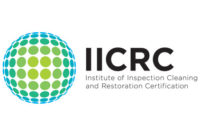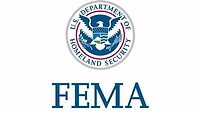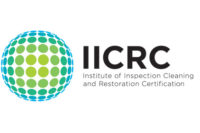FEMA Releases New Strategic Plan

FEMA Administrator Deanne Criswell has released the agency’s 2022-2026 FEMA Strategic Plan, outlining a bold vision and three ambitious goals designed to address key challenges the agency faces during a pivotal moment in the field of emergency management.
The goals are to instill equity as a foundation of emergency management, lead the whole of community in climate resilience, and promote and sustain a ready FEMA and prepared nation. These goals position FEMA to address the increasing range and complexity of disasters, support the diversity of communities FEMA serves, and complement the nation’s growing expectations of the emergency management community.
“I am proud to share the 2022-2026 FEMA Strategic Plan, and I am confident it will serve as a comprehensive and powerful guide as we navigate the next five years as an agency,” said Administrator Criswell. “We will remain focused on increasing equity in our programs and policies, leading resilience in a changing climate and strengthening the emergency management workforce to better serve the nation before, during and after disasters.”
The plan was developed with input from more than 1,000 FEMA employees and over 400 external partners, including 50 tribal nations, who provided their perspectives to help shape FEMA and guide engagements with our partners as we drive toward a more equitable, resilient and sustainable future for our workforce and nation. The Strategic Plan puts people first -- both those who work at the agency and those we serve -- to ensure the agency is meeting the needs of communities and the nation.
Below is additional information on the plan’s three overarching goals the agency will pursue over the next few years:
Goal 1: Instill Equity as a Foundation of Emergency Management
"The importance of equity in emergency management is not a new concept. We know that historically underserved communities experience differences in preparedness and mitigation measures as well as how quickly their communities can resume social and economic life after a disaster. Moving forward, FEMA will integrate equity as a foundation of our culture through transformational change within our workforce, across our policies and programs, and throughout the emergency management community. The agency will direct resources, ensure informed decision making and routinely evaluate our program and policies to help eliminate disparities in access and outcomes."
Goal 2: Lead Whole of Community in Climate Resilience
"Climate change represents a profound crisis for our nation. It is causing more frequent, more intense and more destructive natural disasters. We realize that when communities and individuals are climate literate, they are better positioned to take the necessary steps to apply that knowledge and build more resilient communities. FEMA will lead the way toward increasing climate literacy within the emergency management community, helping to build a foundational understanding of climate science and the impacts of climate change. FEMA is also committed to increasing climate investments across the nation to ensure we are leveraging our grant programs to target investments, enabling communities to directly address their own threats from climate change."
Goal 3: Promote and Sustain a Ready FEMA and Prepared Nation
"As disasters have become more frequent, severe and complex, the demands placed on emergency managers continue to increase. FEMA will lead the effort to advance the emergency management profession by supporting curriculum for comprehensive training, education and professional development, accessible to our whole community partners. This ensures we are transforming our training programs to a community-based approach and making that training available to students wherever they are in the nation."
FEMA will be engaging with stakeholders and partners across the nation in 2022 to discuss how to work together to achieve these goals.
Looking for a reprint of this article?
From high-res PDFs to custom plaques, order your copy today!





